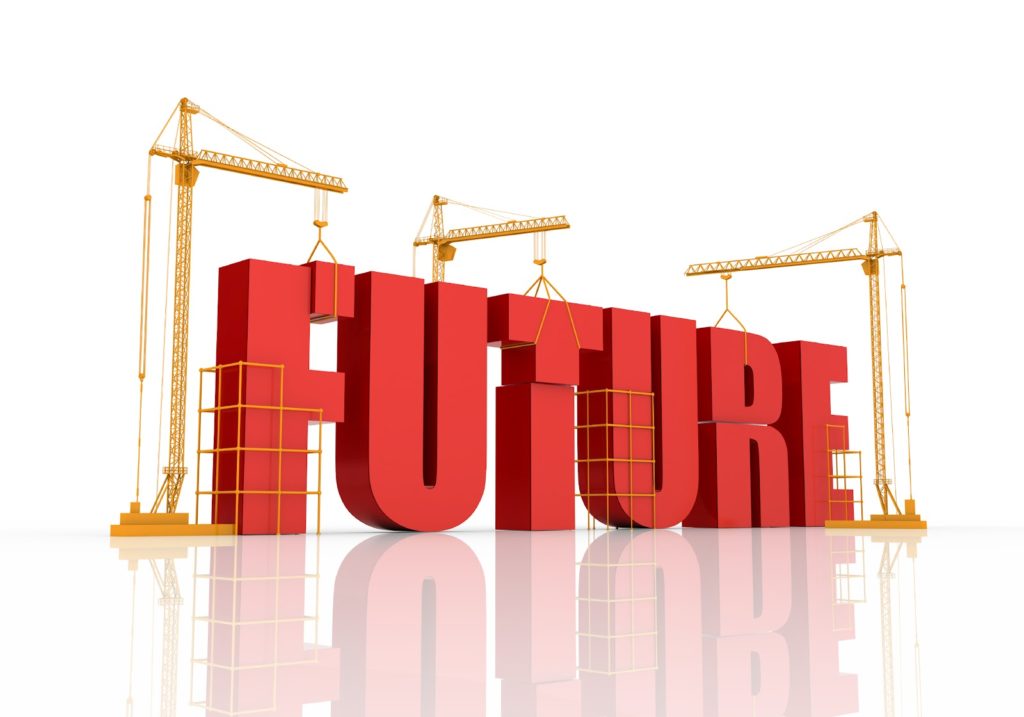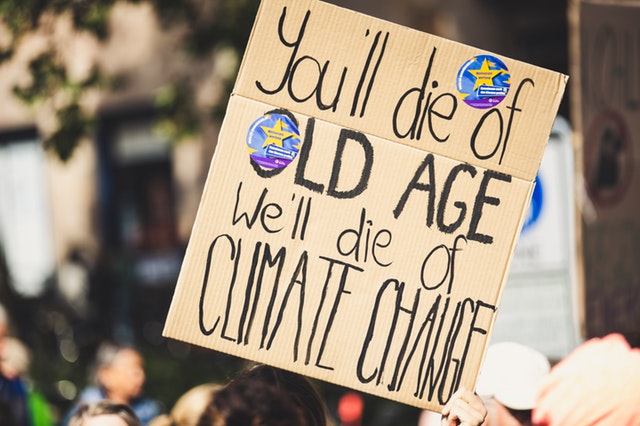
Trying to identify who is (and isn’t) “an essential worker” is the wrong game to be in today. As the current upheavals are making plain: all workers are essential workers.
Everyone who wants to work in America should be able to do so because:
– the economy depends on all workers, and not just somebody’s idea about who is essential and who is not;
– economically, strong families and communities depend upon wage earners and the kinds of livelihoods that generate those wages; and
– psychologically, the well-being of families and communities derives from their members feeling like they are (or can grow up to be) productive members of these basic social groups.
As a result, if a country like the US is to thrive, its democratic institutions must ensure that the benefits of capitalism and hard work flow not only to the “factory owners” but also to everyone who wants to work in those “factories” and in the communities that sustain them.
During the bloodletting of American jobs over the past 8 weeks, the government has tried to cobble together a safety net of small business loans, stimulus checks and enhanced unemployment benefits to protect the workforce. But every day that passes makes these efforts seem more like a fool’s errand. For tens of millions of American workers, these stop-gap measures are failing them and the anxious testimony about their daily struggles is heart-breaking proof. A labor market that was already teetering before March 1 has begun to collapse.
Over the past 50 years, the US has put economic growth (championed by the Right) and victim compensation for those that a growing economy fails to help (the band aids championed by the Left) at the center of government policies that most affect workers. As if there weren’t enough proof already, the Covid-19 crisis has revealed the bankruptcy of this approach for all but a wealthy few. It’s long past the time to make the economic welfare and psychological wellbeing of every American worker our national priority.
In the great rebuilding that lies ahead, it’s the ability to work, to support ourselves “with the fruits of our labor,” and to feel like we’re contributing to our families and communities that is essential. That means we’ll need to start treating all workers in America like they’re essential workers.
Empty the Old Glass & Help Fill a New One
Over Easter, a young Episcopal priest in the Park Slope section of Brooklyn delivered a sermon called “The World is Empty Now. How Should We Fill It?” His impassioned plea later appeared in The New York Times, which is where I read it.
Father Paulikas heralded the remarkable opportunity that’s been presented by a time when the old ways of living and working seems to be vulnerable (or breaking down altogether) and new ones that are more durable and humane can not only be imagined but also realized if we have the courage to do so.
Physically isolated and emptied of our usual lives, we are being forced to face ourselves in a way that few alive today ever have before… Having emptied ourselves, what do we really want to fill our world with once it is time to rebuild?
After the crucifixion on Friday, we’re in the empty tomb on Saturday, he said, daring to hope for the resurrection on Easter Sunday. In other words, this empty but hopeful time is an opportunity to ask basic questions about how we want to live and work tomorrow.
What does it say about our economy that it depends on the labor of people whose lives we are willing to sacrifice? Do we want to continue participating in an exhausting economic system that crumbles the instant it is taken out of perpetual motion? And what is the virtue of a desire for constant accumulation of wealth and goods, especially when they come at the cost of collective welfare and equality? These are not just policy questions. They are spiritual concerns that come into view with sharp clarity in the emptiness around them.
Since this is where we find ourselves, what should we do about it?
It Starts With Deciding What’s Most Important and All the Other Things That Aren’t
While accepting that our top and lesser priorities might be different, I tried to puzzle through the process for myself a couple of times last year as it relates to my jobs as a writer, arbitrator, citizen and member of a community where difficult choices between one thing and another always have to be made.
In a January, 2019 post, I’d recently finished Edmund Phelp’s Mass Flourishing and had just read Oren Cass’s The Once and Future Worker: A Vision for the Renewal of Work in America. I found myself in broad agreement with how each of them viewed the challenges confronting workers today and at least some of their proposals for addressing them.
Phelps argued that for America to flourish, its workers need to flourish by taping into their native resourcefulness—the kind of free enterprise that’s been blossoming here and there since this novel coronavirus pushed us into a corner. Prior to 1970, the vast majority of workers flourished as entrepreneurs and small business owners, Phelps argued, tapping into their creativity at the front end of their work and their feelings of accomplishment at the backend for sustenance.
By giving us an opportunity to demonstrate our capabilities, work allows us to realize our potential, be proud of our abilities to provide for ourselves and our families, be similarly proud of what we’re making or doing, and be more confident when facing the future because we feel that we have a stake in it and that it is not merely ‘happening to us.’ When enough individual workers flourish like this, Phelps argues, an economy overall flourishes.
For his part, Cass argued that “a labor market in which workers can support strong families and communities is the central determinant of long term prosperity, so it should [also] be the central focus of our public policy.” When we fail to produce enough jobs to serve that objective, the human toll weakens the nation as a whole, and tears its social fabric. To help prove his point, Cass cited studies finding that:
workers never recover economically from unemployment; that men only form families when they have work that can provide for them; that unemployment is a trigger for divorce; and that children have better outcomes when at least one parent is working. Moreover, communities where people are working are more vibrant and tend to attract more investment. In other words, communities filled with workers are good for those living there and good for everyone else too.
Before an April, 2019 post that was called “The Social Contract Around Our Work is Broken,” I’d been reading how Soshana Zuboff distinguished between the pre-1970 American economy and the roughly half-century of work that has followed in one of her essays. From say 1980 to the present, when the benefits that companies gained from pro-business policies failed to “trickle down” to the vast majority of workers, the result has been a yawning wealth gap between the top 10% and all other American workers. But this almost “feudal” system of lords and serfs was hardly inevitable.
American companies after World War II were expected to offer a kind of communal reciprocity that involved hiring the available workers, hiking wages when possible, and sharing their prosperity rather than hoarding it… Zuboff cites [Karl] Polanyi’s post-War study of General Motors not only for the ways that fair labor practices, unionization and collective bargaining preserved ‘the organic reciprocities’ between its workers and owners but also for how much the public appreciated these shared benefits at the time.
The period between 1945 and 1970 featured some glaring social and political divides, but it also saw many companies maintaining “the basic reciprocities” between them and their workers. Unfortunately, it’s a balance we’ve failed to strike since then. I’d argue that at least some of the human desperation we’ve been hearing during the current economic meltdown stems from the fact that it’s our state and local governments and not the companies we work for that have become the guarantors of our jobs.
It doesn’t have to be this way.
A Smile and a Frown
In the debate over who is (and isn’t) “an essential worker,” I saw this posted on-line this week.

It’s pretty funny until you realize that it also depicts the average McDonald’s worker before his status was “elevated” by the current state of emergency. (The rake says it all, don’t you think?)
This week’s news has been loaded with reports about “disposable workers” in farming and meat processing. We’re hearing about home health workers risking their lives for low pay and seniors who have worked their whole lives moving back with their children because they could never save enough for their retirements. As it relates to work, America’s social contract has failed on nearly every front to safeguard “the basic reciprocities” between our companies and our workers.
In the emptiness of today, we have a chance to re-consider whether this is ok with any of us.
There was a report from the Brookings Institution this week arguing that “essential” workers should receive “hazard pay” during this health emergency. In a sidebar that included audio were comments from one of these temporarily essential workers. The following is some of what Matt Milzman, a Safeway cashier in Washington D.C., had to say, in the plainest of ways, about what we’ve lost but could regain:
[A]ll of these millionaires and billionaires who run these companies are thinking, how do I maintain my profits? I think there needs to be a fundamental restructuring of how we think and do things in this society that focuses on humanity. The humanity of us in the grocery stores, the humanity of the doctors and nurses in the hospital, the humanity of the people who continue to pick up your trash every day, the humanity of all people in this situation who are going in every day, risking their lives to try and carry on as normal.
If it’s working that’s essential, we should aim to recover the humanity in every job.
This post was adapted from my May 3, 2020 newsletter. Newsletters are delivered to subscribers’ in-boxes every Sunday morning and the contents of some of them are later posted here. If you’d like to receive a newsletter each week (and not miss out on any), you can subscribe by leaving your email address in the column to the right.



